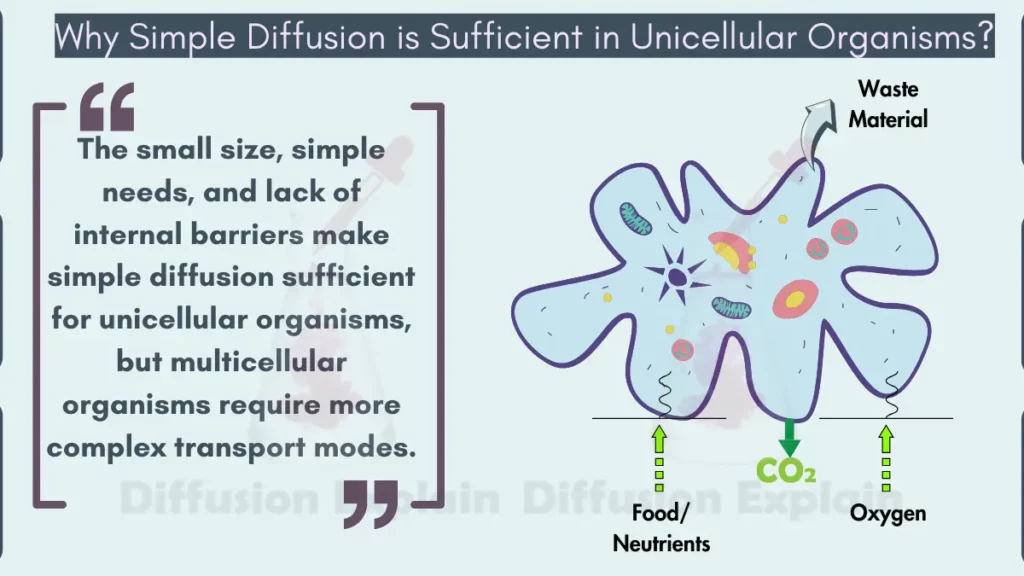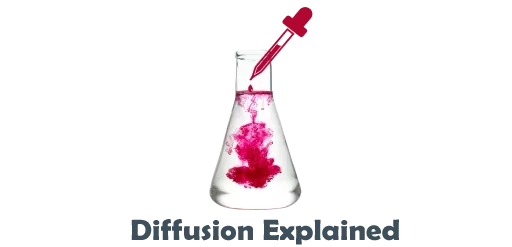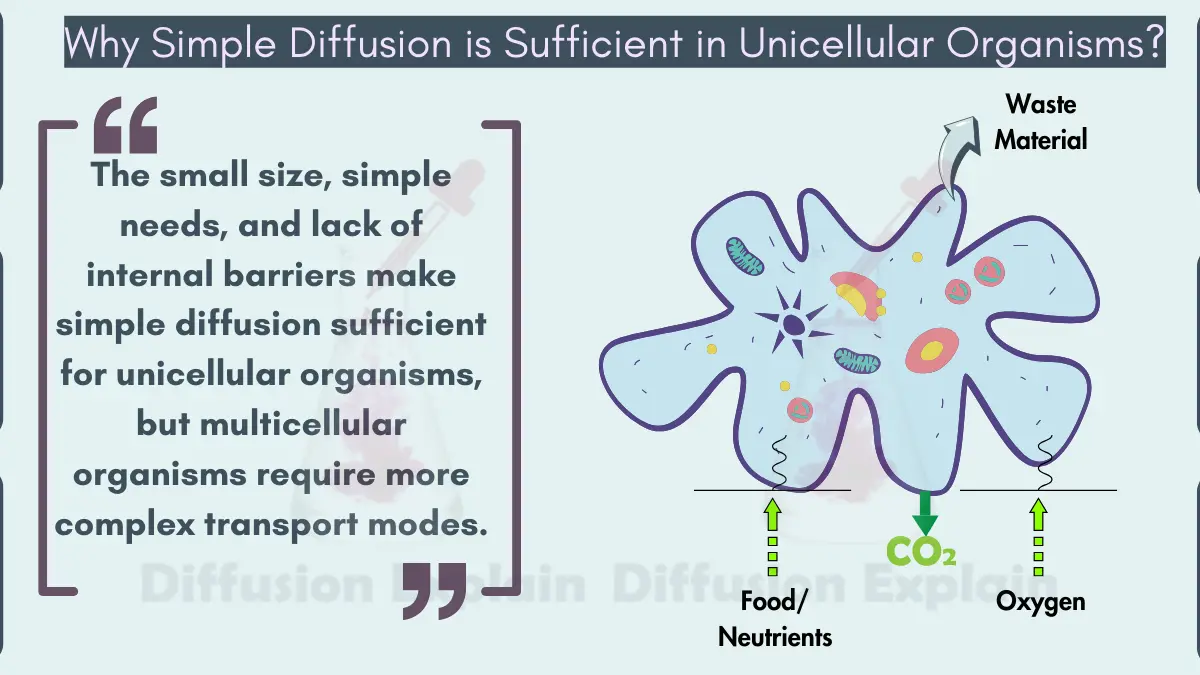The small size, simple needs, and lack of internal barriers make simple diffusion sufficient for unicellular organisms, but it becomes insufficient for multicellular organisms which require more complex transport modes.

Simple Diffusion in Unicellular Organisms
Unicellular organisms depends on simple diffusion for several reasons:
1: Size Advantage
They are small and have a large surface area-to-volume ratio. This means their entire surface is in direct contact with the environment, allowing efficient exchange of molecules like oxygen, nutrients, and waste products through the cell membrane via simple diffusion. This eliminates the need for complex transport systems.
2: Simple Needs
Unicellular organisms have relatively basic metabolic needs that can be met by the passive movement of small molecules across the membrane driven by concentration gradients. Unlike complex multicellular organisms, they don’t require complex transport mechanisms like active transport that demand energy expenditure.
3: No Internal Barriers
They lack complex internal structures like organelles and membranes that could hinder diffusion. Substances can freely move throughout the cell due to the simple organization.

